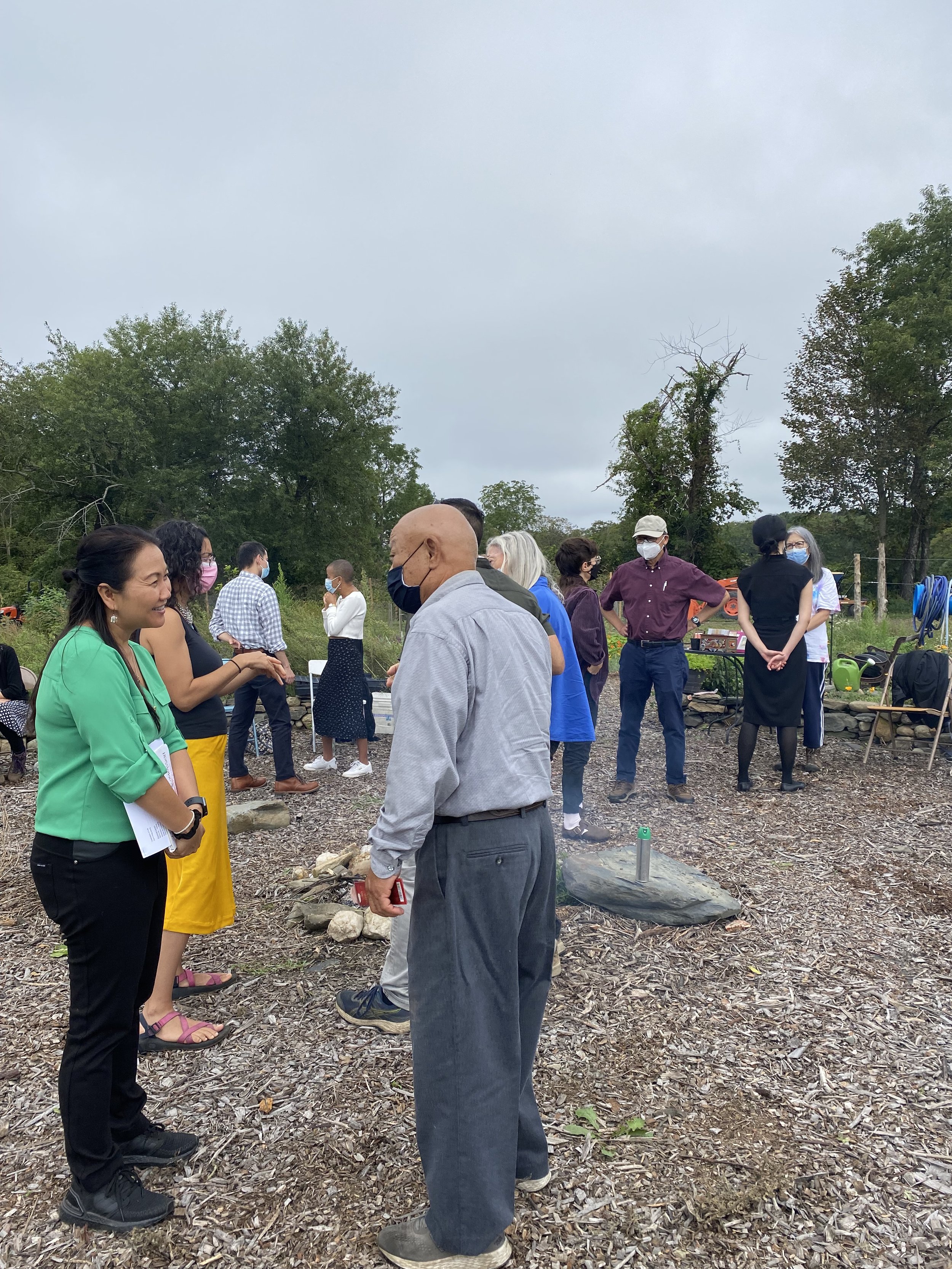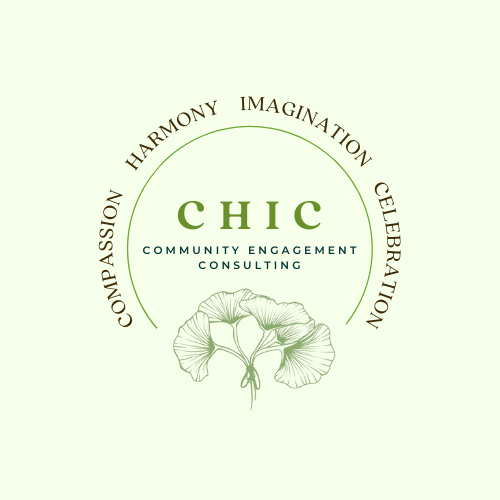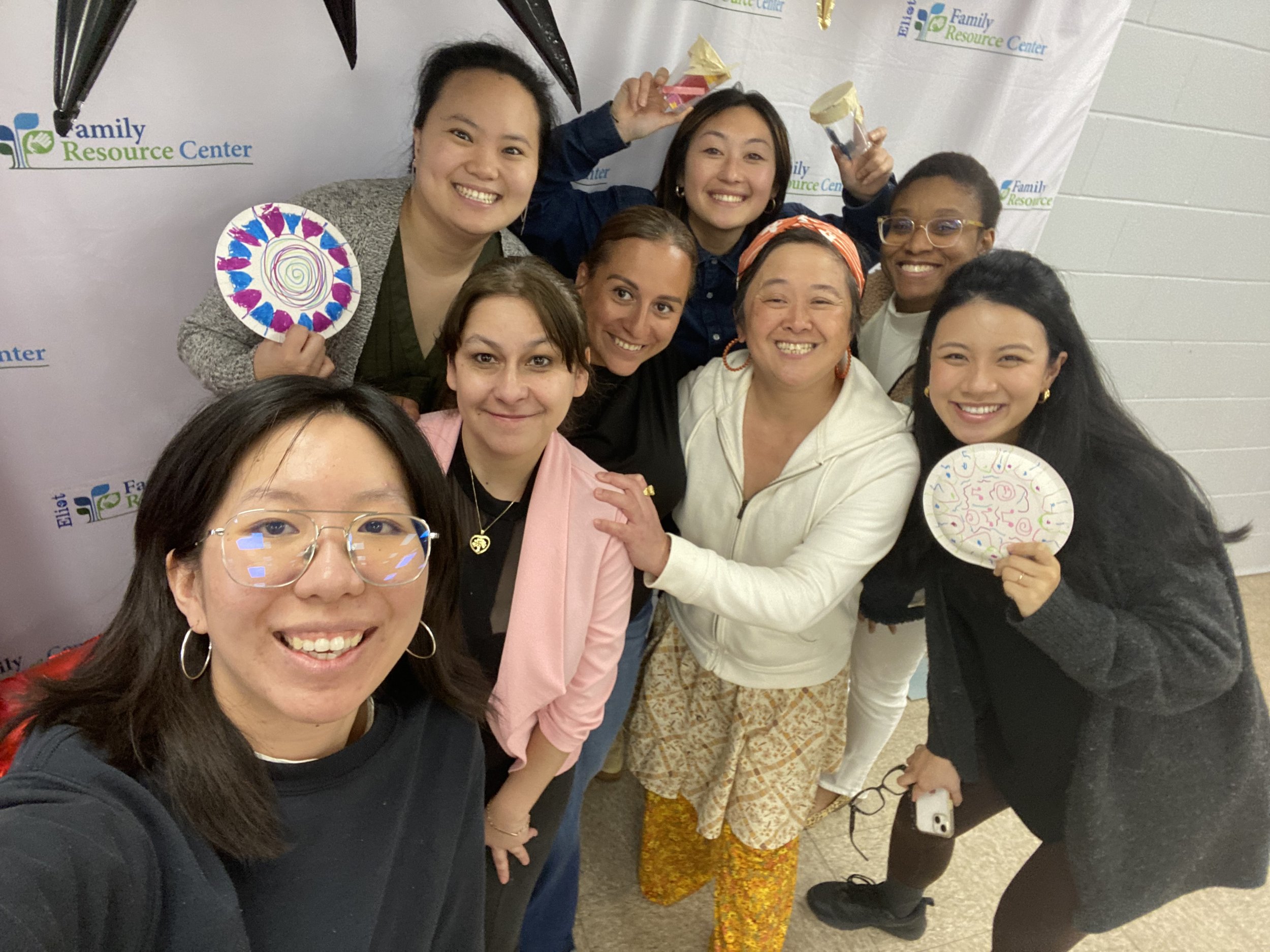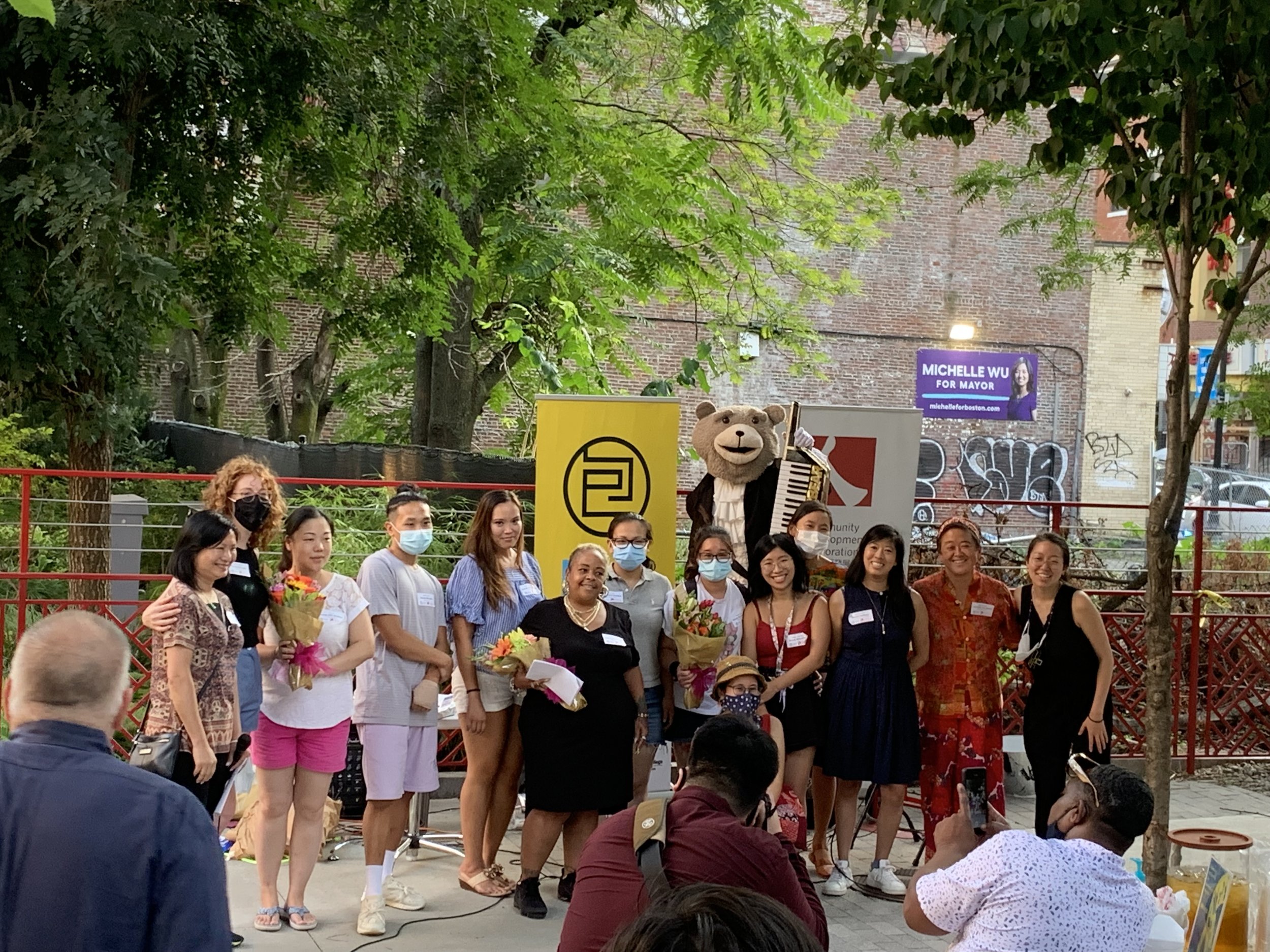Our Work
CHIC has been actively working with community leaders tackling pressing but under-addressed issues in our neighborhoods.
We invite you to read about some of our past projects. Let these stories inspire a future collaboration with CHIC!
Community and Stakeholder Facilitation
The Everett CLHP (Community Level Health Project)
Tackling problem gambling in BIPOC and immigrant communities
This project brought together stakeholders impacted by the Encore Casino to think about how to prevent problem gambling before it hurts individuals, families, and communities. The advisory board brought together the Everett Haitian Community Center, Boston Chinatown Neighborhood Center, the Eliot Family Resource Center, Cambridge Health Alliance, and the Metropolitan Area Planning Council. CHIC acted as stewards and facilitators for the Everett CLHP through a planning process that resulted in key recommendations for funding from the Department of Public Health (DPH), Office of Problem Gambling Services. We developed the key recommendations through deep listening from expert panels, interactions with stakeholders in eight community engagement sessions, monthly conversations with our advisory board, and knowledge of existing gray and peer reviewed literature. From this year-long collaborative planning process, we recommended Project RISE (see below) to DPH and they enthusiastically accepted our recommendations for funding.
Addressing emotional wellness for immigrant communities in in Chinatown and Everett
This project is built upon the recommendations of our Everett CLHP report and focuses on addressing emotional wellness for immigrant communities through the lens of racial equity and access to culturally appropriate services. We recognized that to serve these populations well, we must strive to ensure they feel respected, heard, and that they have a sense of belonging which will require new, innovative thinking and requires a framework that is caring and just.
Project RISE focused on the prevention of problem gambling through placing family connectors in community agencies to providing culturally and linguistically appropriate wellness services and programs unique to each community. Project RISE was funded by the Office of Problem Gambling Services of the Massachusetts Department of Public Health. CHIC guided and facilitated a learning community of three immigrant-serving organizations and provided on-line and on-site capacity-building and technical assistance to the three agencies: Boston Chinatown Neighborhood Center, Everett Haitian Community Center, and Eliot Family Resource Center. Services included: 1) Monthly on-site tailored technical assistance to each agency 2) Support for hiring, training, and mentoring of seven family connectors, staff with lived and learned experience who provided services 3) Provision of training and on-going support in conducting listening sessions, developing annual workplans, logic models, and regular evaluation system and 4) Support for directors at each agency with monthly on-line group, monthly on-site support, and phone support
Chinatown HOPE (Health, Opportunities, Possibilities, and Empowerment)
Activating open space in Chinatown alongside eight Chinatown-serving agencies
Chinatown HOPE is a collective of seven Chinatown-serving agencies focused on addressing emotional wellness through the development of a resident-led garden brigade, art and wellness programs in open space, and long-term advocacy for open space in Chinatown. The key stakeholders included Asian Community Development Corporation, Boston Chinatown Neighborhood Center, Chinatown Main Streets, Chinatown Residents Association, Chinatown Community Land Trust, Chinese Progressive Association, Josiah Quincy Elementary School, and the Rose Kennedy Greenway funded by the Healthy Neighborhood Initiative of Beth Israel Deaconess Medical Center. Over two years, Chinatown HOPE successfully established three gardening brigades and collaborated on six public wellness events that served over 300 people. Collectively, these activities increased emotional wellness and confidence, social connection among residents, sense of belonging in Chinatown, and care for Chinatown. Advocacy and activation efforts brought attention and investment to Chinatown open spaces and strengthened conditions for stronger advocacy in the future.
CHIC led the community engagement phase and the design process to develop the intervention. During the intervention phase, we led bi-monthly meetings of the Collective Directors and Program Staff; co-led three working groups focused on wellness activities, gardening, and advocacy which included other staff of member organizations; and worked with Data Plus Soul, the outside evaluator, to develop evaluation tools and metrics and co-implement evaluation data collection sessions.
Photo Credit: Lee-Daniel Photography
Photo Credit: The Chinatown Project
Chinatown Cultural Plan
Securing the future of Chinatown through arts and culture
The Chinatown Cultural Plan is an addendum to the 2020 Chinatown Master Plan. The Chinatown Cultural Plan was a planning process that engaged the community in identifying the neighborhood cultural assets and charting a future for Chinatown that centers the importance of arts and culture. Funding was provided through the main facilitator, Metropolitan Area Planning Council (MAPC). CHIC participated on working group with the Metropolitan Area Planning Council, Mayor’s Office of Arts and Culture, and 4 Chinatown-served community-based organizations which oversaw the implementation of the design of the Chinatown Cultural Plan. CHIC served as project manager for the two artists who led creative community engagement offerings and creative documentation. CHIC supported lead engagement artist, Mel Taing, by co-organizing four creative community engagement sessions, Memory Mapping Dinner and Humans of Chinatown engaged 86 stakeholders including residents, youth, artists, community workers, and visitors. CHIC also supported lead artist, Lily Xie, with management help for the creative documentation which included a website/toolkit describing the Chinatown Cultural Plan and process.
Community Storytelling
Asian Community Development Corporation and Pao Arts Center
Residence Lab (ResLab) Community Storytelling Project
The ResLab Community Storytelling project is a portrait of ResLab and the impact it has had on individuals in the program, the community-based organizations involved, and the broader Chinatown neighborhood. By looking retrospectively at four cohorts of ResLab artists and residents, this project sought to illuminate the long-term/cumulative impact of the program as well as how ResLab has grown, changed, and evolved over time to meet the changing needs of artists, residents, and the neighborhood. The goal of this portrait was to contribute to both the arts and community development sectors and how these sectors think about the role and impact of artists and residents in artist residencies and neighborhood placemaking/placekeeping efforts. The final report illuminated how artists and residents worked together on socially engaged practices in a way that was co-created and collaborative, where the resident was seen as an artist.
Design Studio for Social Intervention (ds4si) and Radical Imagination for Racial Justice (RIRJ)
Evaluating an innovative space for reimagining social intervention design
We worked with ds4si and Radical Imagination for Racial Justice (a regranting partnership between MassArt and the City of Boston) on a community storytelling evaluation project that includes an evaluation of a Civic Design course which is training artists of all backgrounds to re-think and re-imagine the design of social interventions. The course is one element of ds4si’s newly launched Design Gym, an innovative, physical space in Uphams Corner that is a community resource for artists, creative, and creators to have the space, resources, and connections to actualize their interventions and projects. The Design Gym offers classes such as documentary filmmaking, woodworking, radical imagination, and others.
PRX
Community asset mapping to build capacity for community engagement & storytelling
PRX incubated the Massachusetts Storytelling Collaborative to support the local storytelling ecosystem in Gateway Cities through partnership-building, training, and strategy development. They aim to support local storytellers who want to tell, amplify, and disseminate stories that shift and re-frame dominant narratives. CHIC conducted a community asset mapping project based on the experiences of local storytellers. This mapping project looked at the strengths, weaknesses, opportunities, and threats different Gateway Cities face in supporting local storytellers and will offer recommendations to PRX for how to partner with Gateway Cities to support their capacity-building efforts around storytelling. Additionally, this mapping project provide a framework for other media outlets for how to do community engagement for storytelling that helps to amplify stories that are not being told.
Watch this space for more updates on our work as we continue to launch and build upon programs to transform our communities.












